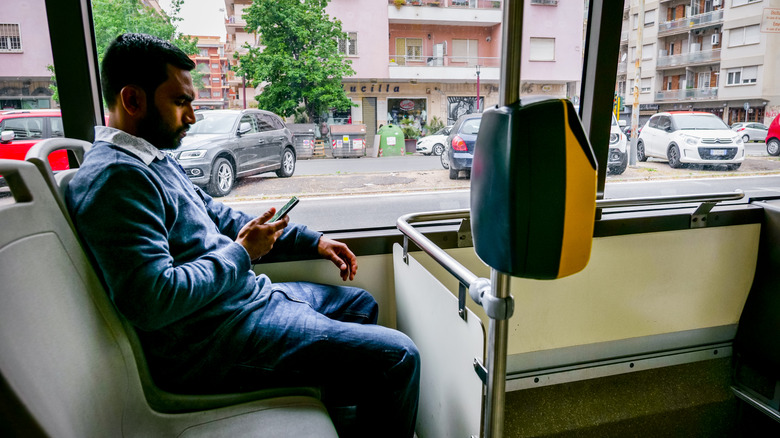Rome is one of the most visited cities in the world, and it’s easy to see why. The tourist mecca boasts incredible historic sites, some of the best museums in Italy, and amazing local food. Hopping on a bus is one of the easiest ways to experience all the city has to offer. Roman city buses run at nearly all hours of the day, except for a short window overnight, and follow routes that connect to metro stations, major attractions, and off-the-beaten-path neighborhoods.
The buses are also quite cheap, costing as little as $1.50 for 100 minutes. However, they’re not so affordable if you get fined. Tourists who aren’t used to Rome’s bus system can often receive costly fines for not validating their tickets. During a journey, ticket inspectors enter the bus and start checking passengers’ tickets or passes — and simply having a paper ticket isn’t enough. If your ticket doesn’t have a validation stamp, you’ll be given a fine on the spot, even if you try to explain your innocent mistake.
The standard fee is between 100 and 500 euros (about $107 and $536), though the penalty can be reduced to 50 euros ($54) if paid within five days of issue. Keep in mind, however, that this can quickly add up if you’re traveling in a group, as each person will be fined individually.
How to buy and use bus tickets in Rome

The public transportation system in Rome allows credit card payments. However, if you’re paying for an electronic ticket, only one card can be used per passenger. If you plan to travel around the city with children, or if you prefer to avoid using your credit card, paper tickets are the way to go. They can be purchased at metro stations, convenience stores, newsstands, or tobacco shops. For timed tickets, such as the 100-minute and 24-hour passes, you only need to validate the token during your first trip. However, be sure to not use the ticket past its expiration time (printed on the ticket after you validate it).
When you take the bus, enter at the front, as the ticket validation machine may be located near the driver. It will look like a yellow box, where you can insert the ticket at the top. If you don’t spot the machine there, look to the back of the bus instead. Keep in mind that the machines can sometimes malfunction, and even if it isn’t your fault, you can still be fined if your ticket isn’t validated. If the machine is out of order, write the date, time, and bus vehicle number on your ticket to manually validate it.
What to do if you receive a fine

Bus ticket inspectors will typically offer rule violators two options: Pay the fine immediately or risk coughing up more euros by paying later. If you choose to pay on the spot, the inspectors will use a mobile device to collect a credit card payment. Note that they won’t accept cash.
If you choose not to pay at the time of the violation, you can still receive the smaller fee by making a payment within five days. Simply ask the inspector for a violation report and use the information on the slip to make a payment on the ATAC (the official Roman bus company) website. To hold you accountable, however, they will generally ask to see your passport and record your personal information. If you try to leave Italy without paying the fine, expect it to follow you home. One commenter on Reddit revealed that they chose to not pay their fine and have since received three letters to their home address.
If you’re worried about getting fined and would rather avoid the hassle altogether, try some of the city’s other modes of transport. Take the metro in Rome, where you don’t have to validate your ticket at a machine, or rely on your feet to get around.

